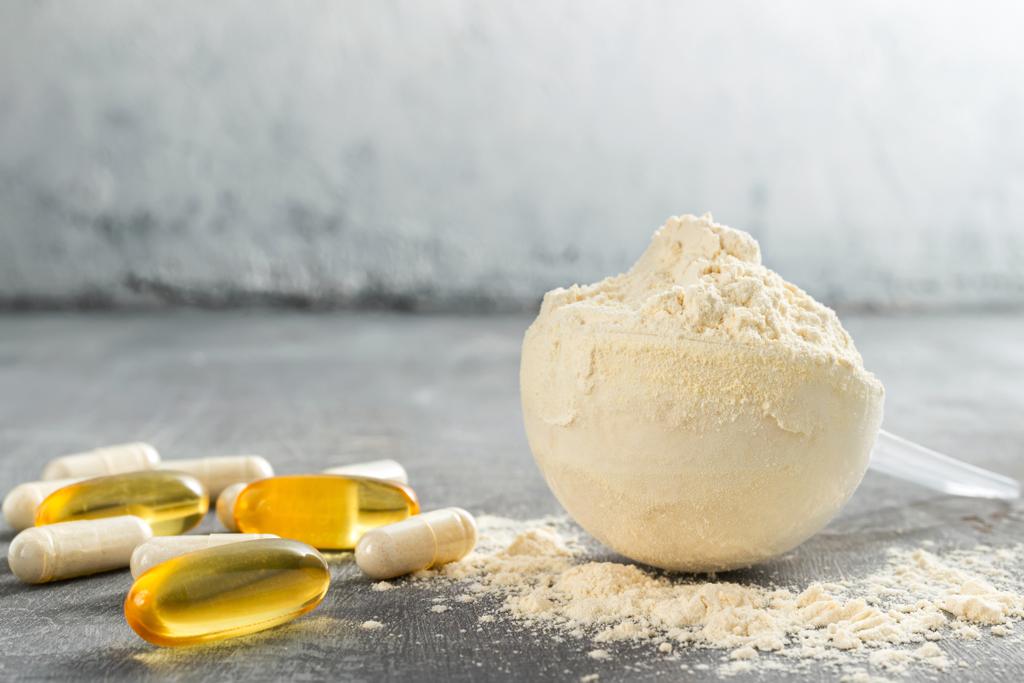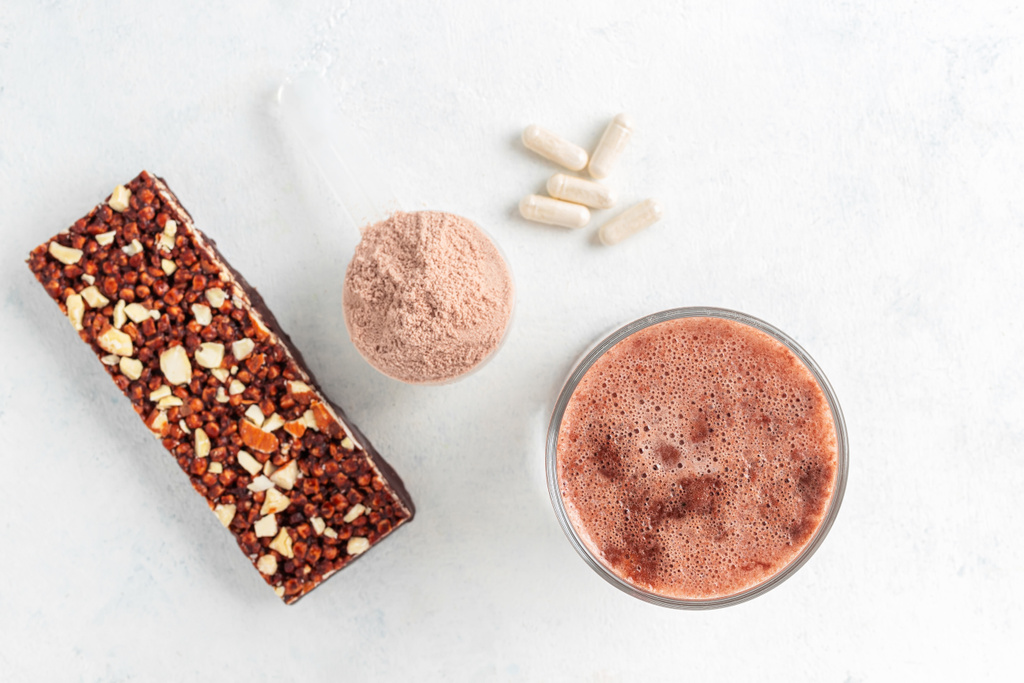Taurine: Energy Booster Explained
September 13, 2023

Hello, energy enthusiasts! Are you ready to dive into the world of Taurine, the unsung hero of energy boosters? Buckle up, because we're about to embark on a thrilling journey through the realms of biochemistry, nutrition, and energy production!
Often found in energy drinks and dietary supplements, Taurine is a fascinating amino acid that plays a crucial role in several bodily functions. But what exactly is Taurine? How does it work? And why is it so important for energy production? Let's find out!

What is Taurine?
Let's start with the basics. Taurine, also known as 2-aminoethanesulfonic acid, is a type of amino acid. But it's not just any amino acid. It's a 'conditional' amino acid, which means that your body can produce it, but sometimes it needs a little help from your diet.
Unlike most amino acids, Taurine isn't used to build proteins. Instead, it's involved in a variety of physiological processes, including the regulation of mineral balance in cells, the formation of bile salts, and, of course, energy production. But we'll get to that in a bit!
The Structure of Taurine
Now, let's get a bit geeky and talk about the structure of Taurine. It's composed of two main parts: an amino group (-NH2) and a sulfonic acid group (-SO3H). This unique structure gives Taurine its water-loving (hydrophilic) properties, which are crucial for its role in maintaining cell hydration and electrolyte balance.
But that's not all! The presence of the sulfonic acid group also makes Taurine a strong acid. This means that it can donate protons (H+ ions) to other molecules, which is a key feature in many biochemical reactions.
Sources of Taurine
So, where can you find Taurine? Well, it's actually quite abundant in the animal kingdom. It's found in high amounts in meat, fish, and dairy products. But if you're a plant lover, don't despair! Taurine can also be synthesized in the body from the amino acids cysteine and methionine, provided that you have enough vitamin B6.
And of course, Taurine is a popular ingredient in energy drinks and dietary supplements. But remember, moderation is key! Too much of a good thing can sometimes be harmful.
The Role of Taurine in Energy Production
Now, let's get to the exciting part: how does Taurine boost energy? Well, it's all about the mitochondria, the 'powerhouses' of the cell. Taurine helps to regulate the movement of ions across the mitochondrial membrane, which is crucial for energy production.
But that's not all! Taurine also acts as an antioxidant, protecting the mitochondria from damage caused by reactive oxygen species (ROS). This helps to maintain the efficiency of energy production and prevents fatigue.
Taurine and ATP Production
Let's delve a bit deeper into the role of Taurine in ATP production. ATP, or adenosine triphosphate, is the main energy currency of the cell. It's produced in the mitochondria through a process called oxidative phosphorylation.
Taurine helps to regulate this process by controlling the flow of electrons along the electron transport chain, a series of protein complexes located in the mitochondrial membrane. This ensures that ATP production is efficient and that energy is readily available when needed.
Taurine and Antioxidant Activity
As we mentioned earlier, Taurine also acts as an antioxidant. But what does this mean? Well, during energy production, some by-products known as reactive oxygen species (ROS) are generated. These molecules can damage the mitochondria and impair energy production.
Taurine comes to the rescue by neutralizing these harmful ROS, thus protecting the mitochondria and ensuring that energy production remains efficient. This antioxidant activity also helps to reduce inflammation and promote overall health.
The Benefits of Taurine
So, what are the benefits of Taurine? Well, aside from its role in energy production, Taurine has several other health benefits. It's involved in heart and brain function, eye health, immune response, and more!
Research has shown that Taurine can help to improve exercise performance and reduce muscle damage. It's also been linked to improved mental performance and mood. So, whether you're an athlete, a student, or just someone looking for a little energy boost, Taurine might be just what you need!
Taurine and Exercise Performance
Let's start with exercise performance. Studies have shown that Taurine can improve endurance and reduce muscle damage during exercise. This is likely due to its role in energy production and its antioxidant activity.
By enhancing ATP production and protecting the mitochondria from damage, Taurine helps to ensure that your muscles have enough energy to keep going. This can lead to improved performance and less fatigue during and after exercise.
Taurine and Mental Performance
But Taurine isn't just for athletes. It's also been linked to improved mental performance. This is likely due to its role in neurotransmission, the process by which signals are sent between nerve cells in the brain.
Taurine acts as an inhibitory neurotransmitter, helping to regulate neuronal activity and maintain the balance between excitation and inhibition. This can lead to improved focus, memory, and mood.
The Safety of Taurine
Now, let's talk about safety. Is Taurine safe to consume? The short answer is yes, in moderation. Taurine is generally considered safe for most people when consumed in reasonable amounts.
However, like any supplement, it's important to talk to your healthcare provider before starting a new supplement regimen, especially if you have any underlying health conditions or are taking other medications.
Possible Side Effects of Taurine
While Taurine is generally safe, it can cause some side effects in some people, especially when consumed in large amounts. These can include nausea, headache, and dizziness.
It's also worth noting that the long-term effects of Taurine supplementation are not well-studied. So, while it's generally safe in the short term, we don't know much about its long-term safety.
Interactions with Other Substances
Finally, let's talk about interactions. Taurine can interact with certain medications and substances, including lithium and chemotherapy drugs. So, if you're taking any medications, it's important to talk to your healthcare provider before starting a Taurine supplement.
Also, keep in mind that Taurine is often found in energy drinks, which can also contain high amounts of caffeine and other stimulants. So, if you're sensitive to these substances, you might want to be cautious with your Taurine intake.

Conclusion
And there you have it, folks! That's the lowdown on Taurine, the unsung hero of energy boosters. From its role in energy production to its health benefits and safety considerations, we've covered it all!
So, next time you reach for an energy drink or a dietary supplement, take a moment to appreciate the power of Taurine. And remember, knowledge is power, especially when it comes to your health and energy levels!

 Back to Blog
Back to Blog